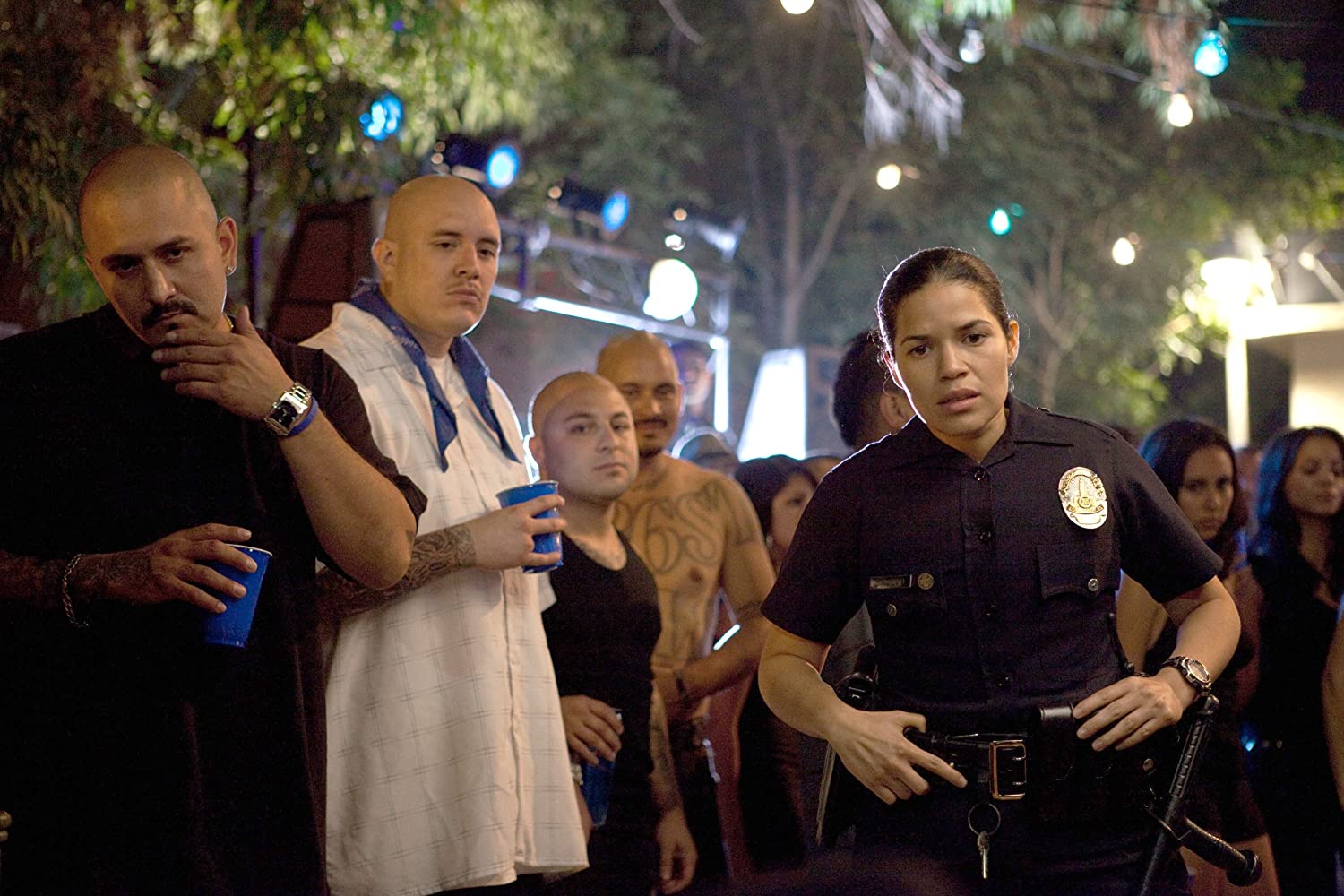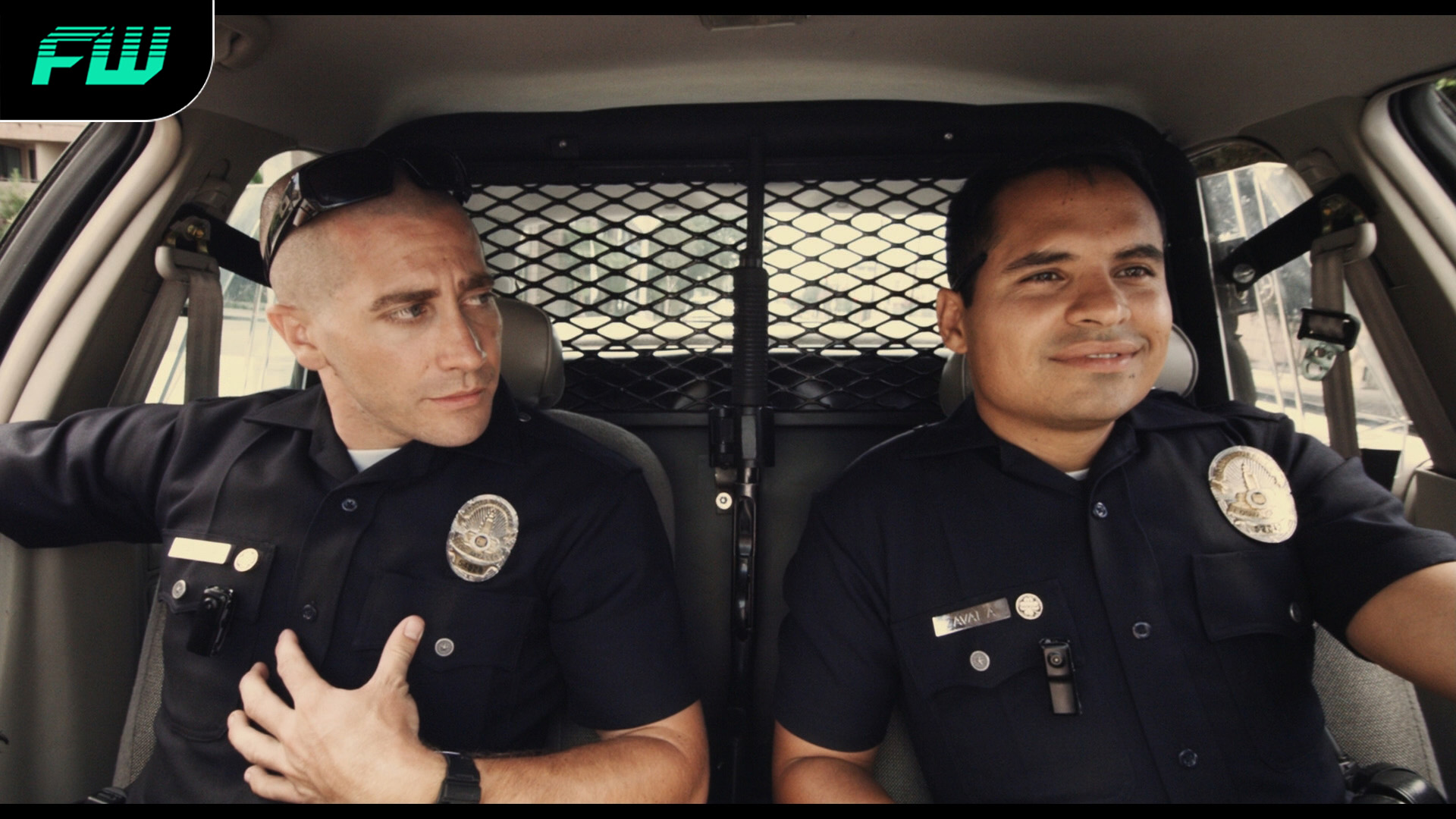End Of Watch Characters: The Story Behind The Badge
When you hear the phrase "end of watch characters," your mind might immediately jump to the critically acclaimed film "End of Watch" directed by David Ayer. But there's so much more to these characters than just what we see on screen. They represent the essence of partnership, sacrifice, and the everyday struggles of police officers in Los Angeles. This article dives deep into the world of these unforgettable characters, exploring their backgrounds, relationships, and the impact they've had on both the film industry and real-life law enforcement.
Released in 2012, "End of Watch" became a cult classic for its raw portrayal of life as an LAPD officer. The film doesn't just focus on action-packed sequences but instead highlights the emotional and psychological challenges faced by those who wear the badge. It's a story that resonates with anyone who has ever wondered what it's like to put your life on the line every day.
What makes "End of Watch" stand out is its commitment to realism. The characters are not mere archetypes—they're human beings with flaws, fears, and dreams. From Jake Gyllenhaal's idealistic Jake Givens to Michael Peña's charismatic Mike Zavala, each character brings something unique to the table. Let's dive deeper into their world and uncover what makes them so compelling.
Read also:Lena Polanski A Rising Star In The Spotlight
Table of Contents
- Biography of the End of Watch Characters
- Jake Givens: The Rookie with a Camera
- Mike Zavala: The Heart of the Story
- Leslie Garland: The Female Perspective
- Brian Taylor: The Voice Behind the Lens
- The Importance of Partnership
- Themes Explored in End of Watch
- Realism in the Film
- Impact on Pop Culture
- Criticism and Controversy
- Conclusion: Why End of Watch Characters Matter
Biography of the End of Watch Characters
Before we dive into the individual stories, let's take a moment to appreciate the ensemble cast that brought these characters to life. The film features a mix of seasoned actors and newcomers, each bringing their own energy to the screen. Below is a quick overview of the main characters:
| Name | Actor | Role |
|---|---|---|
| Jake Givens | Jake Gyllenhaal | Rookie LAPD Officer |
| Mike Zavala | Michael Peña | Veteran LAPD Officer |
| Leslie Garland | Anna Kendrick | Jake's Girlfriend |
| Brian Taylor | Michael Shannon | Partner to Jake |
Jake Givens: The Rookie with a Camera
Jake Givens, played by Jake Gyllenhaal, is the heart of "End of Watch." He's a rookie officer with big dreams and a camera in hand. Jake's desire to document his experiences stems from his passion for storytelling and his need to leave a legacy. But as he delves deeper into the gritty reality of life on the streets, he begins to realize that not everything can be captured on film.
Key Traits:
- Passionate about justice
- Carries a camera everywhere
- Struggles with balancing his idealism with the harsh realities of the job
Jake's journey is one of growth and self-discovery. He starts off as a naive young man who believes he can change the world, but by the end of the film, he's forced to confront the limitations of his ideals. This transformation makes him one of the most relatable characters in the film.
Mike Zavala: The Heart of the Story
Mike Zavala, portrayed by the talented Michael Peña, is the soul of "End of Watch." As a veteran officer, Mike brings a wealth of experience and wisdom to his partnership with Jake. His humor and charisma make him a fan favorite, but beneath the surface lies a man grappling with his own demons.
Read also:Anna Chambers The Rising Star Redefining Modernday Talent
Key Traits:
- Charismatic and witty
- Deeply loyal to his partner
- Faces personal challenges outside of work
Mike's relationship with his family adds another layer to his character. The film doesn't shy away from showing the toll that police work can take on personal lives, and Mike's struggles serve as a reminder of the sacrifices made by officers every day.
Leslie Garland: The Female Perspective
Leslie Garland, played by Anna Kendrick, offers a refreshing female perspective in "End of Watch." As Jake's girlfriend, Leslie provides a counterbalance to the intense world of law enforcement. Her character highlights the challenges faced by partners of police officers, including fear and uncertainty.
Key Traits:
- Supportive of Jake's career
- Struggles with the dangers of Jake's job
- Represents the civilian viewpoint
Leslie's role is crucial in grounding the story and reminding viewers of the human cost of police work. Her concerns about Jake's safety add an emotional depth that resonates with audiences.
Brian Taylor: The Voice Behind the Lens
Brian Taylor, portrayed by Michael Shannon, is Jake's partner and a veteran officer in his own right. Brian's no-nonsense attitude and dedication to his job make him a formidable presence on the streets. However, his personal life is a source of tension, as he struggles to balance his career with his family responsibilities.
Key Traits:
- Experienced and tough
- Struggles with maintaining a work-life balance
- Provides a contrast to Jake's idealism
Brian's relationship with Jake evolves throughout the film, showcasing the importance of trust and communication in a partnership. His character serves as a reminder that even the most seasoned officers face challenges both on and off the job.
The Importance of Partnership
One of the central themes of "End of Watch" is the importance of partnership. Whether it's Jake and Mike or Jake and Brian, the film emphasizes the critical role that partnerships play in law enforcement. Officers rely on each other not just for physical protection but also for emotional support.
Why Partnerships Matter:
- Provides a safety net during dangerous situations
- Offers emotional support during tough times
- Fosters a sense of camaraderie and trust
The film doesn't shy away from showing the challenges of partnerships, such as personality clashes and differences in work styles. However, it ultimately portrays them as essential components of a successful career in law enforcement.
Themes Explored in End of Watch
"End of Watch" is rich with themes that resonate with audiences on a deep level. From the struggles of balancing personal and professional lives to the impact of trauma on mental health, the film tackles issues that are relevant to both officers and civilians.
Key Themes:
- The toll of police work on mental health
- The importance of trust and communication
- The challenges of maintaining relationships
These themes are woven seamlessly into the narrative, making the film both entertaining and thought-provoking. They serve as a reminder of the sacrifices made by those who choose to serve and protect.
Realism in the Film
One of the standout features of "End of Watch" is its commitment to realism. Director David Ayer spent months researching and consulting with real LAPD officers to ensure that every detail was accurate. From the uniforms to the dialogue, the film strives to present an authentic portrayal of life as a police officer.
Realistic Elements:
- Authentic LAPD procedures
- Realistic portrayals of police work
- Use of actual locations in Los Angeles
This attention to detail pays off, as the film feels grounded in reality rather than fantasy. It's a testament to the dedication of the filmmakers and the cast in bringing these characters to life.
Impact on Pop Culture
"End of Watch" has had a lasting impact on pop culture, influencing both the film industry and public perception of law enforcement. Its raw portrayal of police work has been praised for its authenticity and emotional depth. The film has also sparked conversations about the challenges faced by officers and the importance of supporting them.
Legacy:
- Influenced future police dramas
- Highlighted the human side of law enforcement
- Generated discussions about police reform
The film's success can be attributed to its ability to connect with audiences on a personal level. It's not just a story about cops—it's a story about people trying to make a difference in a chaotic world.
Criticism and Controversy
While "End of Watch" has been widely praised, it hasn't been without its critics. Some have argued that the film romanticizes police work and downplays the systemic issues within law enforcement. Others have pointed out that the film doesn't address the broader societal issues that contribute to crime.
Criticisms:
- Romanticizes police work
- Downplays systemic issues
- Fails to address root causes of crime
Despite these criticisms, the film remains a powerful exploration of the human experience. It invites viewers to engage in meaningful conversations about the role of law enforcement in society.
Conclusion: Why End of Watch Characters Matter
In conclusion, the characters of "End of Watch" are more than just fictional creations—they're a reflection of the real men and women who serve in law enforcement every day. Through their stories, we gain insight into the challenges, sacrifices, and triumphs of those who choose to wear the badge. Whether it's Jake's idealism, Mike's humor, or Leslie's concerns, each character adds depth and complexity to the narrative.
I encourage you to watch the film and form your own opinions about these characters. And if you enjoyed this article, don't forget to leave a comment or share it with your friends. Together, we can continue the conversation about the importance of understanding and supporting those who protect us.


